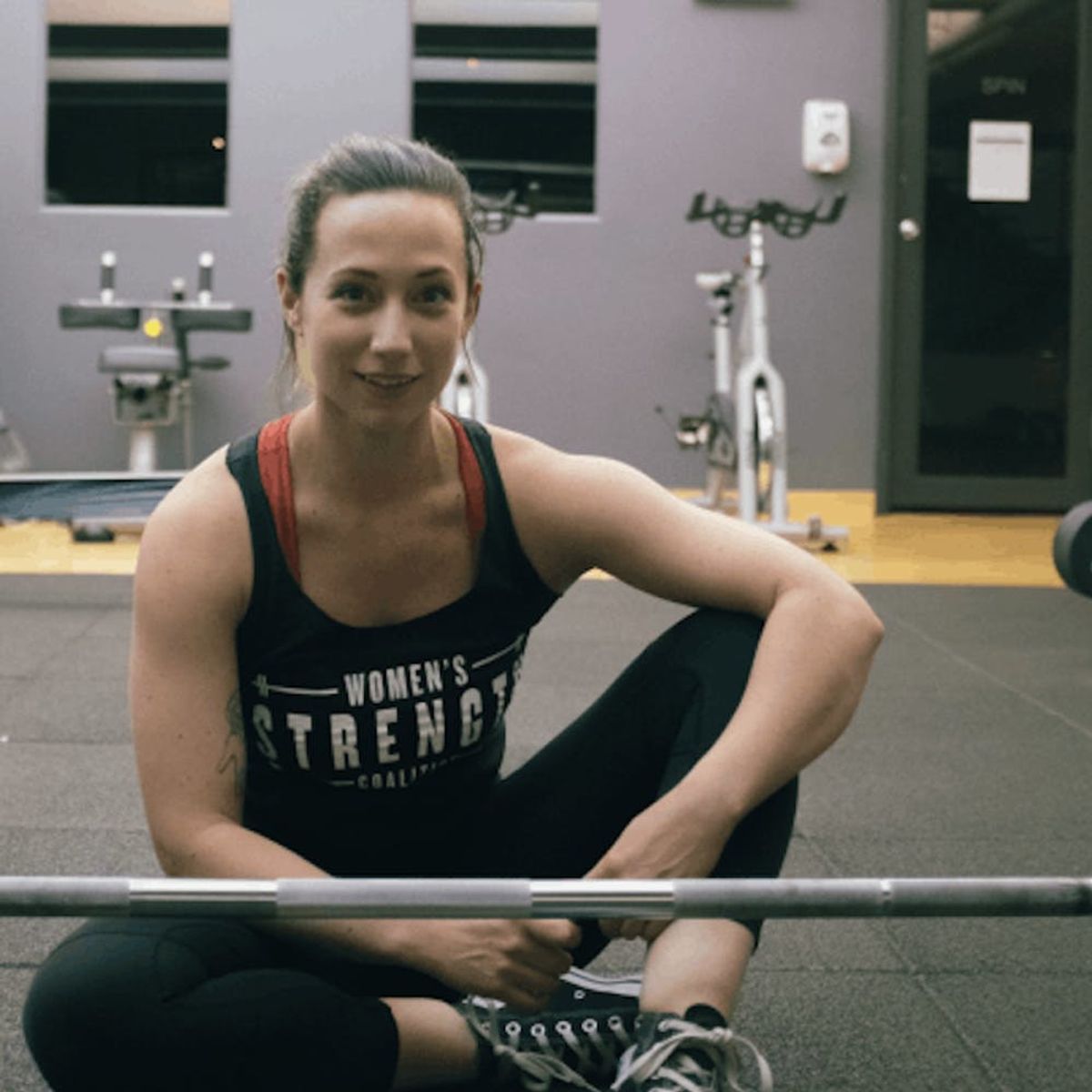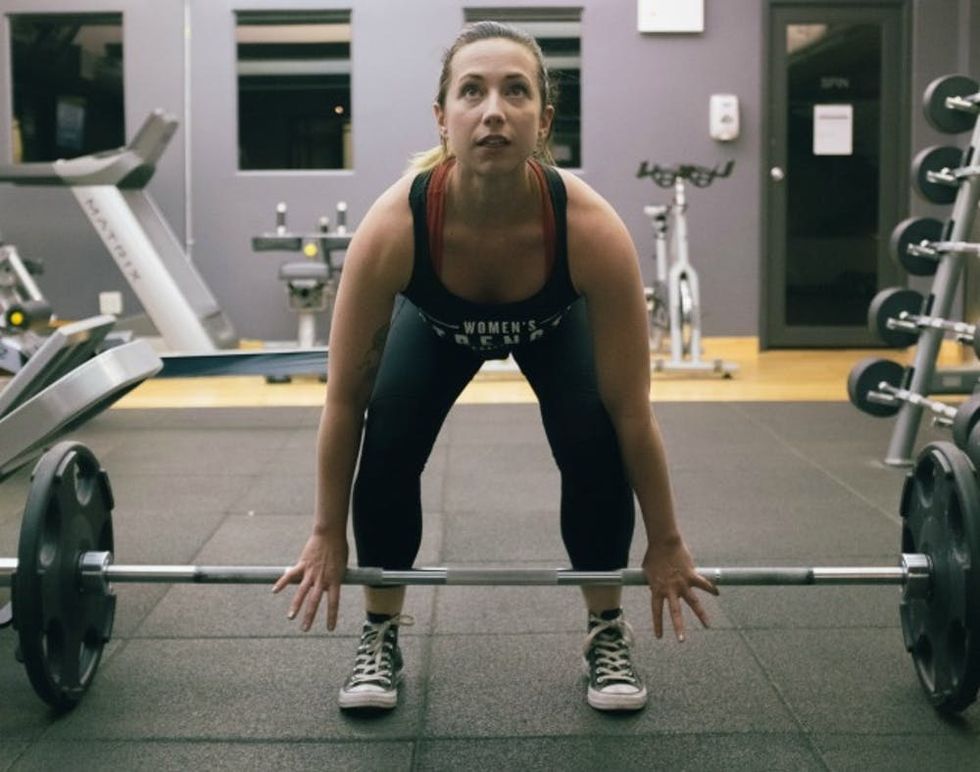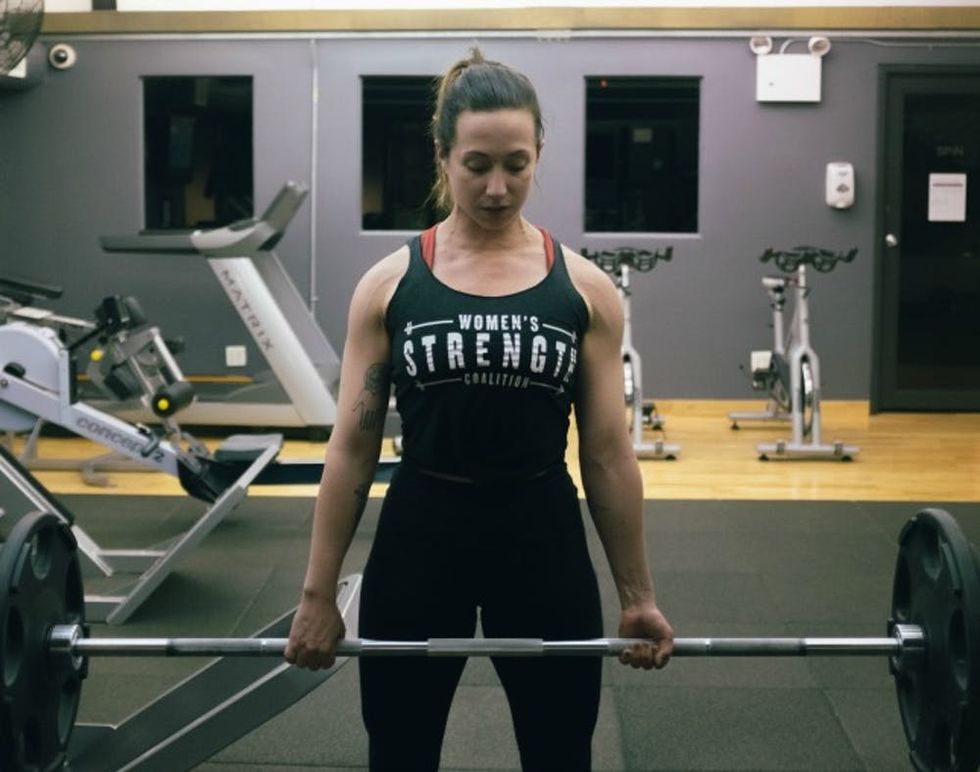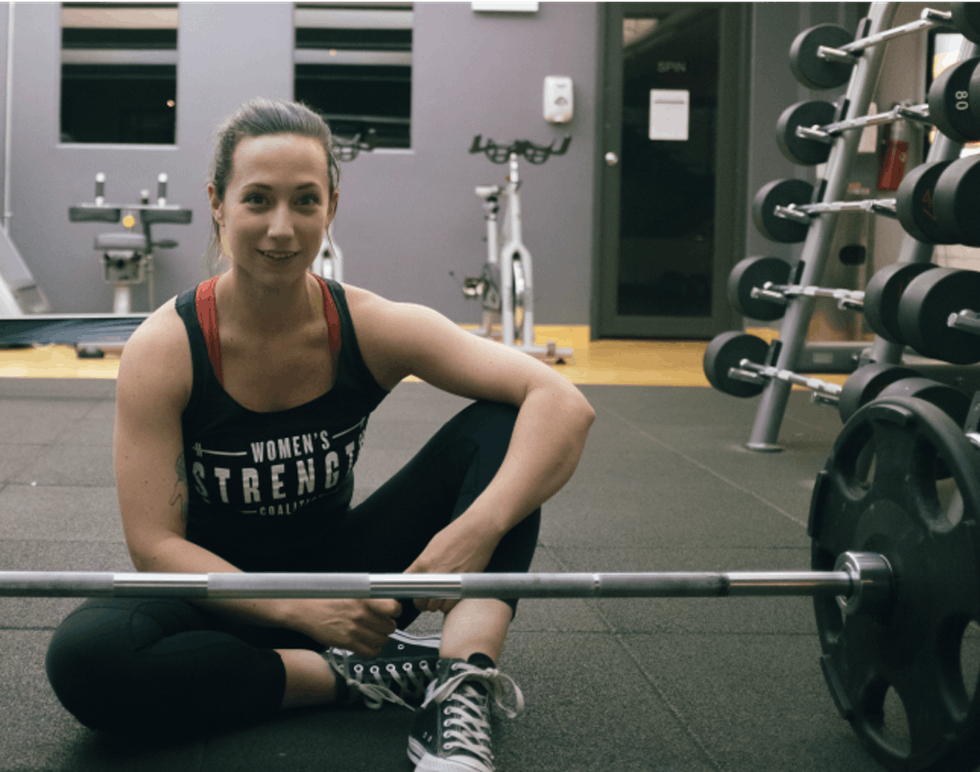Powerlifting Helped Shannon Wagner Find Her Voice — and Turned Her into an Activist


Every Body celebrates inclusivity and the representation of human beings in every shape and form.

“I’m not a victim. I’m not helpless. I’m strong, and I’m taking up space,” says Shannon Wagner, founder of the Brooklyn-based Women’s Strength Coalition, an inclusive powerlifting club with a mission based in activism and accessibility.
Finding her own epic brand of self-confidence and body-positive vibe was no small feat for Wagner, whose experience with an eating disorder left her feeling unmotivated and alienated from her physical self. Getting into lifting helped her reconnect with her body while having the added benefit of equipping her with a new kind of mental strength at the same time. It’s a discovery she’s determined to share with as many people as she can through the WSC and their lineup of events, like the female and nonbinary powerlifting competition they had to benefit Planned Parenthood last spring.
Corrina Allen: Why powerlifting: What drew you personally to the sport?
Shannon Wagner: Powerlifting helped me redefine my relationship to my body, and in a lot of ways, reclaim my identity. I’d never been an athlete before. I hated gym class and I lacked a lot of the confidence and follow-through needed to excel in any sport. In fact, I lacked the confidence to really excel in anything. At some point I convinced myself that I wasn’t talented enough to warrant spending time being creative. It felt like too much of a risk, to put myself out there like that. As I got older, I fully internalized the idea that I wasn’t “enough” in all areas. I wasn’t pretty or thin enough to keep a partner happy. I wasn’t smart enough to get a better job, or pursue my interests in school.
I looked externally for validation in places that were simply unable to offer any. I was obsessed with my appearance, weighing every gram of food and meticulously counting calories until my mild eating disorder behaviors blossomed into full-blown neurosis and bulimia. I was seeking approval and validation from outside sources, while covering up the fact that on the inside I felt empty, shallow, and unloveable. I had no real goals to set because I had no real dreams.
I’d been attending FIT for Fashion Design when I fell in love with yoga. I had a few internships at some top fashion houses in NYC, but realized early into each of them that the industry was not one I felt passionate about. I dropped out of school and became a yoga instructor, excited to have finally found something that brought me into my body. Unfortunately, the environment was one in which my eating disorder felt somewhat accepted. I felt weak, and once again, disillusioned.
While browsing Reddit, I came across a sub called xxFitness, a board where women heralded lifting as a way to not only get in shape, but also to foster mental strength. I couldn’t afford a gym membership, so I practiced the movements with a broomstick in my bedroom. After a few months of talking about my want to learn how to lift, my boyfriend bought me a six-month membership. Starting was a challenge, but now I had no excuse. I taught myself how to squat, bench, and deadlift, struggling at first with just the 45-pound bar. As time passed, I saw that I was able to lift more with each session. It was direct, measurable progress.
My body got stronger. I felt more powerful in my everyday life. If I wanted to make progress in the gym and add weight to the bar, I had to eat. Suddenly I was not treating my body as an ornament, something that existed just to please others. I learned about this incredible movement happening in the fitness industry: women encouraging other women to take up space, to use their voices, to became louder and larger. I became a Personal Trainer to take part in the movement, and then later a Strength and Conditioning Specialist.
With powerlifting, you’re constantly working to become a better, stronger version of yourself. That is an incredible goal. It can really alter the way you approach life. Incremental progress, through hours of struggle, can instill a belief-in-self and a work ethic that can be utilized in other areas. I want to share that with as many people as possible.
You launched the Women’s Strength Coalition as a response to the way you felt after the 2016 presidential election. Can you talk about how you were feeling and why this seemed like the right way to deal with that?
SW: That was a dark time for many. I remember crying in the gym. It felt hopeless, and honestly like there was nothing that I could do to impact any real change. I craved action, versus reaction, but at the same time, I was scared to put myself out there.
Growing up, Planned Parenthood was an organization that protected a lot of women in my neighborhood. It was shocking that many may suddenly lose access to something that was so important to the community.
I nervously approached the Director of Personal Training at Brooklyn Athletic Club to see if he’d host a powerlifting meet to benefit Planned Parenthood. He immediately agreed, and suddenly I felt emboldened by that one “yes” to take further action. I decided to use that event as a launch pad for the nonprofit I’d dreamed of creating, one that would unify efforts in the fitness industry to uplift more people and encourage them to find their strength.
Lift for Planned Parenthood sold out in under a week, raising nearly $15,000 for the organization. The Women’s Strength Coalition has made me realize I’m not alone. Every day I get a new message from someone looking to get involved. Many have similar stories, or credit lifting heavy with allowing them to reclaim their identity and voice.
Little by little, piece by piece, we let our power be taken away. It happens in every marketing campaign that co-opts feminism to sell us clothes. It happens in women’s fitness magazines that imply our accomplishments are less worthy if we don’t look a certain way or are not a certain color. It happens every single time we are being told, “If you buy this, you will be better, or you will be enough.” We can take our power back, and we can also work together to make strength training less prohibitive.

Gyms tend to be competitive environments. How do you ensure that you’re creating a space where everyone feels like they’re welcome?
SW: [We do it] through collaborating with members of the Women’s Strength Coalition, learning through their experiences, and taking the time to educate myself about struggles that I have never personally gone through. Also, as with Pull for Pride, through explicitly saying “You are welcome.”
After the New York Times article came out, there were a few common threads of criticism. One was that we were ruining powerlifting by dragging politics into it. What those people fail to realize, is that some people don’t have the privilege of divorcing themselves from politics no matter what activity they are participating in. Genderqueer and trans athletes can find themselves unable to compete because there is simply not a place for them.
Top of mind is fostering an environment in which a diverse cross section of volunteers and lifters are present, not just in person, but in our social media. This means deliberate action and decision making on the part of the organization, instead of just claiming “inclusivity.”
We need more people out there to self-educate and acknowledge their privilege so that they can see for most, the personal is political. As a white, cis woman, it’d be arrogant for me to pretend like I had all the answers, or understood all of these experiences. It is, however, my responsibility to be self-aware. I’m hoping to harness the challenges I have faced in my life, from ED, to physical and sexual abuse, to create a space that feels authentically safe, welcoming, and accessible. Such an environment simply can’t be entirely my creation; it just wouldn’t work. This should be about everyone who is currently involved, and everyone that is looking to join.
The LPGA is the latest organization to attempt to dictate the clothing women choose to compete in, but at your events, competitors wear whatever they’re most comfortable in — be it a hijab or a sports bra. It seems like a small, superficial thing, but why do you think it matters?
SW: There’s an obvious double standard in required sports apparel. In powerlifting, for example, women are required to wear t-shirts under their singlets during deadlifts, men are not.
Athletes should wear what they feel they are best able to perform in, or what represents their identity. While wearing a singlet in a powerlifting competition serves the function of leveling the playing field and allowing for more accurate judging, there is no adequate justification for requiring women to wear a t-shirt.
One of the reasons our events have been unsanctioned is to avoid those restrictions. Dictating dress codes upholds gender norms that not all of our lifters adhere to. There needs to be more public conversation about this. People are afraid to speak up because they want to remain affiliated with larger sport federations, and to continue working with and for them. It’s our job, however, to question the rules and provide a space for all to participate.
What’s the next big lift? Do you have a new event or cause lined up?
SW: We have a few different events on the horizon! The first is going to be a departure from traditional powerlifting and weightlifting competitions, but it’s in line with our mission to make fitness more accessible. We are partnering with the fantastic nonprofit Rise Youth Athletics, which provides self-esteem-building in-school and after-school fitness instruction, on September 10 in Brooklyn, to host a “field day” to benefit their organization.
On November 19, we’ll be hosting a weightlifting competition to benefit the National Organization for Women Foundation with Jane Orgel, who’s hosted several weightlifting comps. We are also in the early stages of planning events in Atlanta, Nashville, and Colorado in 2018, in addition to our nationwide pride events in June.

How has being involved in athletics helped to increase your self-esteem? Tell us about it on Twitter!
(Photos via Women’s Strength Coalition)



















